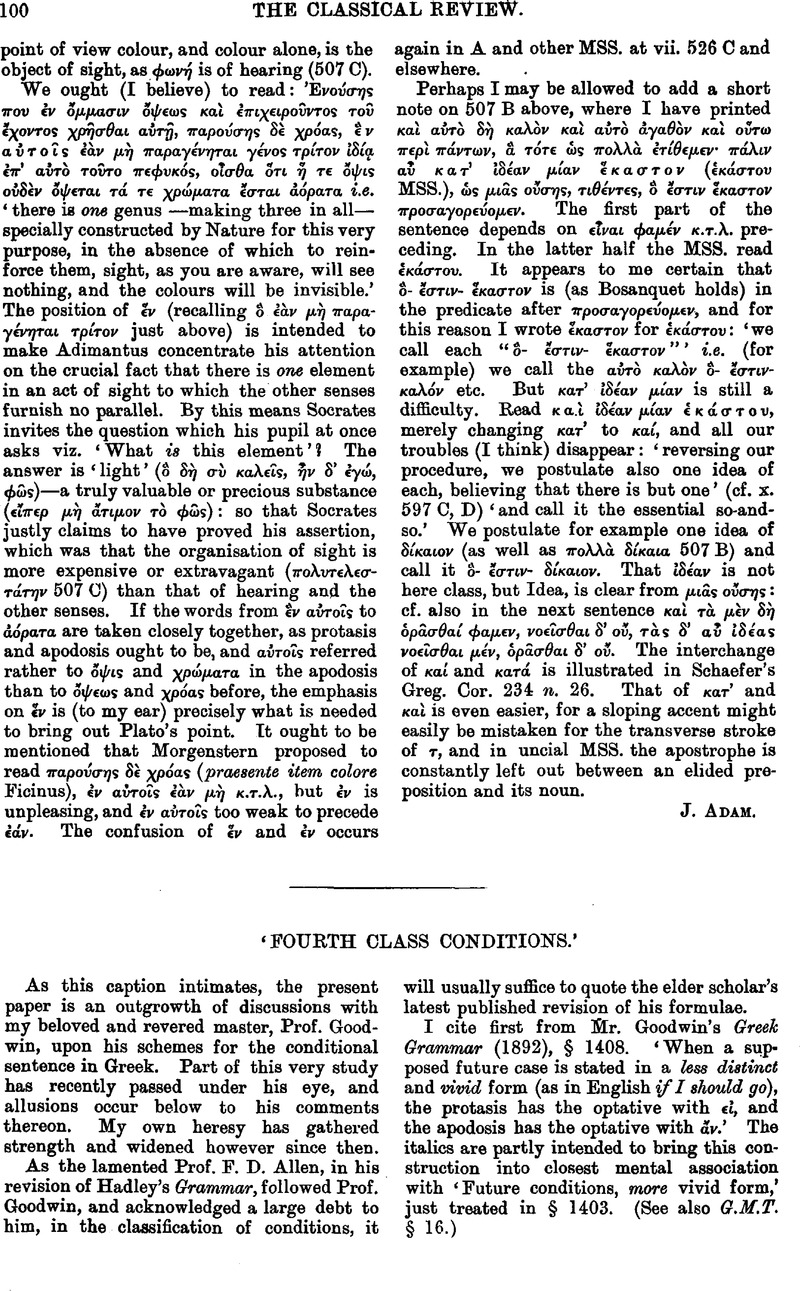No CrossRef data available.
Article contents
‘Fourth Class Conditions.’
Published online by Cambridge University Press: 27 October 2009
Abstract

- Type
- Original Contributions
- Information
- Copyright
- Copyright © The Classical Association 1899
References
page 103 note 1 Not absolutely limited to it, however : I remember surprising Adolf Kirchoff with several examples, from Xenophon's Cyropaedia, of a category he had promptly pronounced impossible : viz. an optative in a ‘general supposition,’ dependent on a present verb.
page 104 note 1 The need of precisely such an idiom befalls me as I jot down these words. Εἰ ὀρθή ἐστιν ἡ διάγνωσις, δεδήλωται νῦν δὴ would be disrespectful to my master, who is presumably in the right: but εἰ ὀρθὴ ἦν, δῆγον ἂν ἦν, would abandon the whole field of discussion. So I say![]() κ.τ.λ. (Falls ich Eecht haben sollte, so dürfte es jetzt wohl schon klar sein u.s.w.).
κ.τ.λ. (Falls ich Eecht haben sollte, so dürfte es jetzt wohl schon klar sein u.s.w.).


